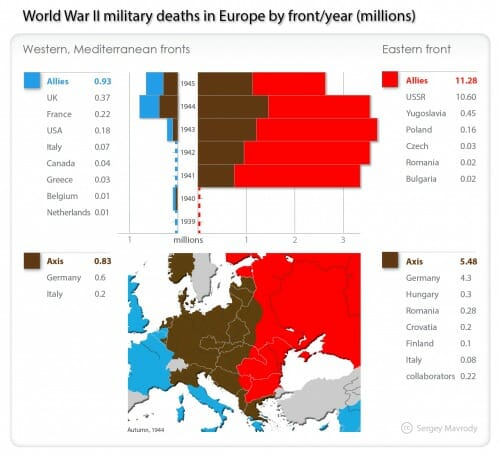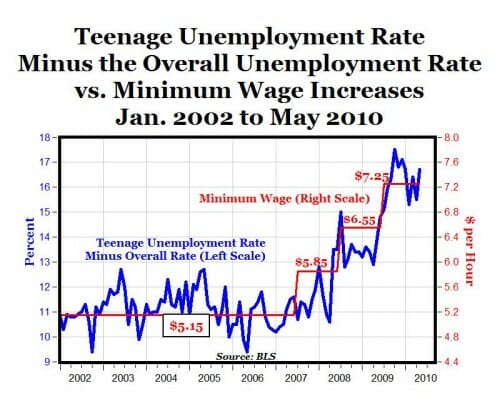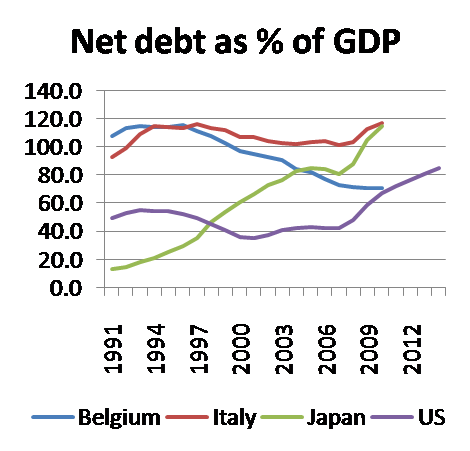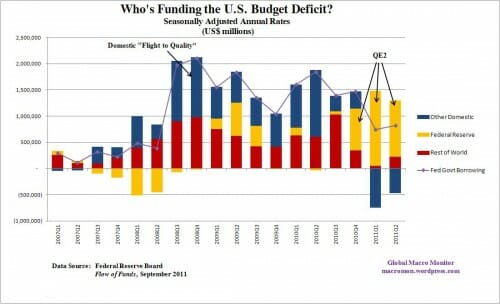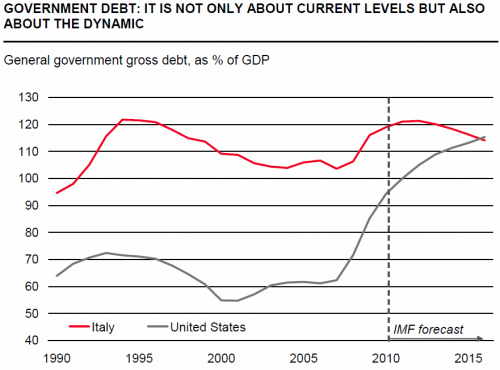I went to a good private school (Kinkaid in Houston, if anyone knows it). I didn't really know how good it was until I went to an Ivy League college and found I was ahead of most of the other students in most every subject. The thing I thank Kinkaid for more than anything is that we had to write -- and write, and write. Every test was an essay test. By the time I was 18, I could write a well-organized and reasonably coherent (but not well-proofed, as readers will know!) five paragraph persuasive essay in my sleep. (My ability to communicate was not really advanced at all in college, and I only began to learn more about persuasive, organized communication when I joined McKinsey & Co. and was taught the pyramid principle).
Anyway, that is all background to my one gripe about primary school -- I hated language learning. Hated it. I took Spanish from Kindergarten through the 11th grade, but counted the years and months and days to when I could quit. From when I was 18 until I was about 45, I never had any desire to learn another word of any language again.
But about 10 years ago I picked up a Pimsleur language course (Italian, I think) and I loved it. Knowing some Italian really enhanced my trip to Italy. From there on, I have been studying a number of languages.
I want to pause for a minute and reflect on why I hated language learning so much in school but like it now. It could just be a function of age -- I was bored stiff plowing through Les Miserables in high school but re-read it as an adult and loved it. But I think there is a bigger problem: I think schools suck at teaching languages. My kids, who generally love learning and are good at school, hated language class. My guess is that people just want to be able to converse, which is what courses like Pimsleur are geared towards. When I go to Florence, I want to be able to order dinner in Italian and talk to the shopkeepers. But in high school we seemed to spend a lot of time learning two (!) forms of the pluperfect subjunctive in Spanish. Great for the AP, but my guess is that the bartender in Barcelona is going to give you a pass for messing up the subjunctive. "If I were to have a beer, how much would it have cost me yesterday and how much might if have cost if I had come tomorrow instead?"
So I have taken about 60 hours each of Italian, Spanish, German, and Mandarin. I seem to be able to remember them all in deep memory but I can only hold one other language in my short-term, immediately-available recall buffer. So I have to do 5-6 hours of one of these again before I go to the country to shift that language into the top of the memory heap.
I like the Pimsleur approach, which is pure auditory (which matches how I learn, I have a much higher ability to remember what I hear than what I read). The courses use an approach called spaced repetition that works well for me, and must work for others given that these courses, which are pretty old and predate all the new Internet tools, are still quite popular. The one oddity about them is that they almost never explain any points of grammar. For example, they really don't explain the rules of verb conjugation. You are expected to figure out the rules as you go based on the examples -- essentially you back into the rules based on use. This works pretty well, though certain situations can drive English speakers crazy. For example, we are not used to having a command form of verb conjugations, as Spanish and Italian have, so I have seen folks get confused for a while when the verb in "You can come with me" and "Come with me" are conjugated differently. At some point one needs more structure for grammar, which means I almost always buy a basic grammar book and one of those 501 verb conjugation books for each language I do on Pimsleur.
People always ask me which languages were easiest and hardest. The answer is that it depends. Each have hard and easy parts. Here are a few thoughts on each (all from an English-speaker's perspective):
- Spanish and Italian are incredibly similar, so similar it can be confusing knowing both, as I forget exactly which word is which when their words for something are very similar. Both have a lot of borrow words in common with English and have sentence structures and word order reasonably similar to English (except for having adjectives follow rather than precede nouns). Like other romance languages, they have gendered nouns which are unfamiliar to English speakers and generally I find gendered nouns add complexity without any really gain in meaning. I consider both Spanish and Italian to be easy languages for an English speaker to learn. In terms of which of the two is easiest, I have studied Spanish since I was 4 so I can't really be unbiased here, and they are similar in many ways. Spanish plurals are more natural to English speakers, and I think management of adjectives with the genders is a bit easier and it seems to be more regular. Italian verb tenses are a bit easier, without as much complexity in past tenses as there are in Spanish. Overall, though, both are fun and easy to learn.
- German is a mixed bag but was generally a lot harder for me to learn. If you hate the two genders in Romance languages, you are going to love having three (!) in German. German has pretty rigid rules about sentence order which in many cases will be unnatural to English speakers. For example, there are certain types of sentences where the verb goes at the very end, after everything else (something Mark Twain made fun of). When you have a list of adverbs or prepositional phrases in a sentence, there is a correct order for them (e.g. time before place). In English we would consider "I ate in the kitchen in the morning" and "I ate in the morning in the kitchen" to be equally OK but not so in German. The articles and possessive pronouns not only have different forms based on the 3 genders of the noun, but there are different forms if the noun is in different parts of a sentence, eg the direct or indirect object. I found myself having to diagram each sentence and plan it out in my head before I let it come out of my mouth. I can say a fair amount in German, but it never became natural. The good news about German is that pronunciation is very regular, though there are a few sounds you have to learn to make that we don't have in English. There are a ton of borrow words, so a lot of vocabulary comes easily. And verb conjugation is pretty straightforwards, with what seems to be fewer cases in use than in, say, Spanish (never learned a future tense and no special command tense, though I suppose one could be snarky and say all German verbs are in command form.)
- Mandarin is a mixed bag but it may surprise English speakers that it is easy in some ways. First the hard parts: Speaking it is really hard for a westerner, as every sound has at least four possible tones, plus variations such as falling and rising. I am a terrible singer and believe I would have done much better at Mandarin if I were good at music, since the hitting the tones right felt a lot like singing to me. The other hard part about Mandarin is the almost complete and total lack of borrow words. Every single word is new and unfamiliar. But there are aspects that are surprisingly easy, such as basic grammar. There are no gendered nouns, there are really no plurals, and within a tense there seems to be no very conjugation -- For example the form of "to be" for I, you, she, they are all the single same word. Many things from numbers to prepositions are very logical, in some ways almost like it was designed by a group of scientists. Past tenses are also surprisingly easy to form. There are a few quirks, like special count words -- it is not just one beer, but one count of beer, and the word for "count" changes whether you are counting beers or people or something else. But all in all, a very easy language to learn -- if it were not such a royal pain in the butt to pronounce for westerners.
By the way, I find that being able to speak the languages has different value depending on the language. People in Italy and Spanish-speaking countries are just absurdly delighted if you can speak any of their language -- there is a big payback in goodwill. Also, it is far easier in Italy or Latin American (than, say, in Germany) to find oneself in a place where no one speaks English. In Germany, the homeless people speak better English than my German. When I insisted on trying to use German, the Germans were generally willing to let me try but you could just see their impatience, knowing they could have finished the exchange two minutes earlier in English. Mandarin turned out to be a virtual non-starter. I just did not have enough experience conversing with natives to be comprehensible. Also, it was easy to run into many other dialects, or other languages like Cantonese. Others have reported that many Chinese hate when Westerners try to speak Mandarin and will pretend not to understand it -- I can't confirm or deny this, though my Chinese exchange student loves it when I try to speak Mandarin.
Postscript: Mark Twain on German:
A dog is "der Hund"; a woman is "die Frau"; a horse is "das Pferd"; now you put that dog in the genitive case, and is he the same dog he was before? No, sir; he is "des Hundes"; put him in the dative case and what is he? Why, he is "dem Hund." Now you snatch him into the accusative case and how is it with him? Why, he is "den Hunden." But suppose he happens to be twins and you have to pluralize him- what then? Why, they'll swat that twin dog around through the 4 cases until he'll think he's an entire international dog-show all in is own person. I don't like dogs, but I wouldn't treat a dog like that- I wouldn't even treat a borrowed dog that way. Well, it's just the same with a cat. They start her in at the nominative singular in good health and fair to look upon, and they sweat her through all the 4 cases and the 16 the's and when she limps out through the accusative plural you wouldn't recognize her for the same being. Yes, sir, once the German language gets hold of a cat, it's goodbye cat. That's about the amount of it.
- Mark Twain's Notebook
Much more here. I would swear I saw a quote from Twain that said he had read a whole book in German but did not know what was happening until he got to all the verbs on the last page, but I can't find the quote.
